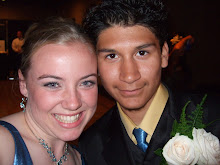 s either a work that speaks for or against aspects of the modern world, based upon interpretation.
s either a work that speaks for or against aspects of the modern world, based upon interpretation.In the poem the speaker is discussing faces in a crowd, a piece of familiarity in a large group of people. Being in the Metro station, a place made possible by modern technology, has brought him familiar faces. To the speaker, these faces are like “Petals on a wet, black bough,” delicate pieces of beauty, light, and color on a cold wooden surface. The modern world is one of greater togetherness and possibilities for happiness.
Not only does the poem advocate a more modern world, it also acts to show a more modern side of poetry. The poem is made up of two lines without following the specific formulas and guidelines seen in more classical forms of poetry. The briefness of the poem acts to portray the more modern idea of thoughts and actions being quick and to the point rather than following a specific idea.
However the poem can be seen as meaning the complete opposite. The appear
 ance of faces in the crowd could be referring to a huge impersonal throng of people. These strange faces may be the petals on the black bough. The subway station would be a dark underground place and when interpreted in this way the phrase can be seen as the image of darkly clad people in a dark space with only their faces being distinguishable to the speaker. This gives the poem a very somber feeling and leads to the belief that the modern world is one of distance and impersonal faces floating in and out of view.
ance of faces in the crowd could be referring to a huge impersonal throng of people. These strange faces may be the petals on the black bough. The subway station would be a dark underground place and when interpreted in this way the phrase can be seen as the image of darkly clad people in a dark space with only their faces being distinguishable to the speaker. This gives the poem a very somber feeling and leads to the belief that the modern world is one of distance and impersonal faces floating in and out of view.The form of the poem can also be interpreted to mean that the modern world is bad. While the author may be intending to show the brief poem is effective in illustrating a point, he may also be saying that more modern thinking of being brief is impersonal and ambiguous. It is also possible that Pound was following classic poetic guidelines of having an end rhyme; a slant rhyme appears in the poem which may perhaps show that Pound is trying to hint at a more classic form of poetry, while not completely implying it.
A lot can be seen about modernism within these two lines; but as with any discussion of the modern world it is uncertain whether the shift is good or bad.

No comments:
Post a Comment